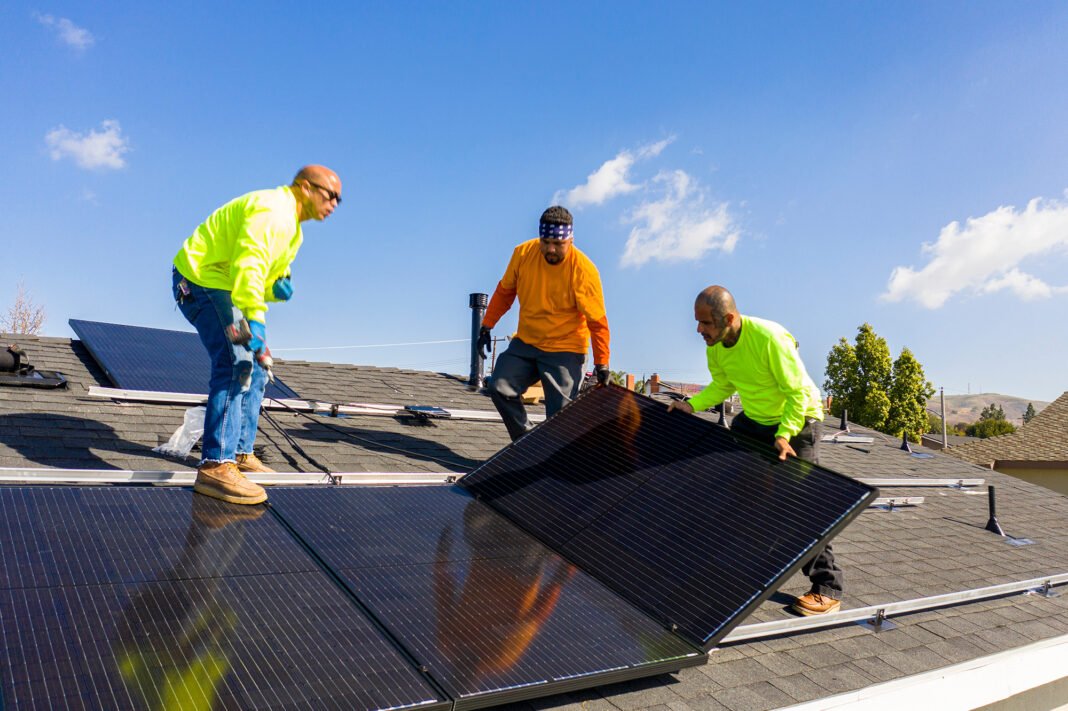Solar energy has been heralded as a game-changer in the quest for sustainable and renewable energy sources. Despite its growing popularity, several myths and misconceptions continue to cloud public understanding. These myths often deter individuals and businesses from investing in solar panels, despite the numerous benefits. In this article, we will debunk some of the most common solar energy myths, providing you with accurate information and insights to make informed decisions about harnessing solar power.
Myth 1: Solar Panels Don’t Work in Cloudy or Cold Climates
One of the most pervasive myths is that solar panels are ineffective in cloudy or cold climates. This misconception likely stems from the belief that solar panels need direct sunlight to function.
- The Reality: Solar panels generate electricity from daylight, not just direct sunlight. While efficiency may decrease on cloudy days, solar panels still produce energy. Countries with less sunny weather, like Germany and the UK, are leading solar energy adopters, proving that solar panels can work effectively in various climates.
- Cold Weather Advantage: Interestingly, solar panels can perform better in cold temperatures. Like most electronic devices, solar panels operate more efficiently in cooler conditions than in extreme heat.
Myth 2: Solar Panels Are Too Expensive
The perceived high cost of solar panels often discourages potential adopters from considering solar energy as a viable option.
- The Reality: While the initial investment can be substantial, the cost of solar panels has decreased significantly over the past decade. Additionally, various government incentives, tax credits, and financing options make solar energy more affordable than ever. Many homeowners see a return on their investment within a few years due to reduced electricity bills.
- Long-term Savings: Solar panels can significantly reduce or even eliminate electricity bills. Over their 25-30 year lifespan, solar panels can save homeowners tens of thousands of dollars, making them a financially sound investment.
Myth 3: Solar Panels Require Constant Maintenance
Some people believe that maintaining solar panels is a time-consuming and costly endeavor.
- The Reality: Solar panels require minimal maintenance. They have no moving parts, which reduces the likelihood of mechanical failure. Periodic cleaning to remove dust and debris and occasional inspections to ensure connections are secure are usually sufficient.
- Durability: Most solar panels come with warranties of 20-25 years, underscoring their reliability and low maintenance requirements. Advances in technology continue to improve the durability and longevity of solar panels.
Myth 4: Solar Energy Isn’t Reliable
Another common myth is that solar energy cannot be relied upon for consistent power due to the variability of sunlight.
- The Reality: Solar energy systems are designed to be reliable and can include battery storage systems to store excess energy for use during periods of low sunlight or at night. Additionally, most solar systems are connected to the grid, ensuring a continuous power supply even when solar production is low.
- Grid Stability: Solar energy contributes to grid stability by providing distributed generation. This reduces the strain on centralized power plants and can help prevent blackouts.
Myth 5: Solar Panels Are Not Environmentally Friendly
Some argue that the production and disposal of solar panels have a significant environmental impact, negating their green benefits.
- The Reality: While there is an environmental impact associated with the production of solar panels, it is relatively small compared to the environmental benefits they provide. Solar panels produce clean, renewable energy and have a carbon footprint far lower than that of fossil fuel-based energy sources.
- Recycling and Disposal: The solar industry is increasingly focusing on recycling technologies to minimize waste. Programs for recycling old solar panels are being developed, ensuring that the environmental benefits of solar energy continue to outweigh any drawbacks.
Myth 6: Solar Panels Can Damage Your Roof
Concerns about roof damage can deter homeowners from installing solar panels.
- The Reality: When installed correctly by professional installers, solar panels do not damage your roof. In fact, they can protect the roof by shielding it from the elements, such as rain, snow, and UV rays. Proper installation includes secure mounting systems that do not compromise the integrity of the roof.
- Added Protection: Solar panels can extend the lifespan of the roof sections they cover by protecting them from weathering.
Myth 7: Solar Energy is Only for the Wealthy
The misconception that solar energy is a luxury only accessible to the wealthy persists.
- The Reality: Solar energy is becoming increasingly accessible to a broad range of consumers. With the cost of solar panels decreasing and various financing options available, including leasing and power purchase agreements, solar energy is no longer an exclusive commodity. Incentives and rebates make it possible for many homeowners to afford solar installations.
- Community Solar Programs: For those who cannot install solar panels on their property, community solar programs offer an alternative. These programs allow individuals to buy or lease a portion of a shared solar system, providing access to solar energy benefits without upfront costs.
Myth 8: Solar Panels Are Ugly
Aesthetic concerns about the appearance of solar panels can deter some homeowners from installing them.
- The Reality: Advances in solar panel design have made them more visually appealing. Sleek, low-profile panels and building-integrated photovoltaics (BIPV) blend seamlessly with the roofline, offering a more attractive option. Additionally, the environmental and financial benefits often outweigh aesthetic considerations.
- Curb Appeal: In some cases, solar panels can even increase property values and curb appeal, as buyers increasingly recognize the value of renewable energy.
Conclusion
Debunking these common myths about solar energy reveals the true potential and benefits of solar panels. Understanding the realities of solar energy can help more people make informed decisions and embrace this sustainable technology. With decreasing costs, increasing efficiency, and a myriad of incentives, now is an excellent time to consider investing in solar energy. By dispelling these myths, we can pave the way for a brighter, cleaner future powered by solar energy.


